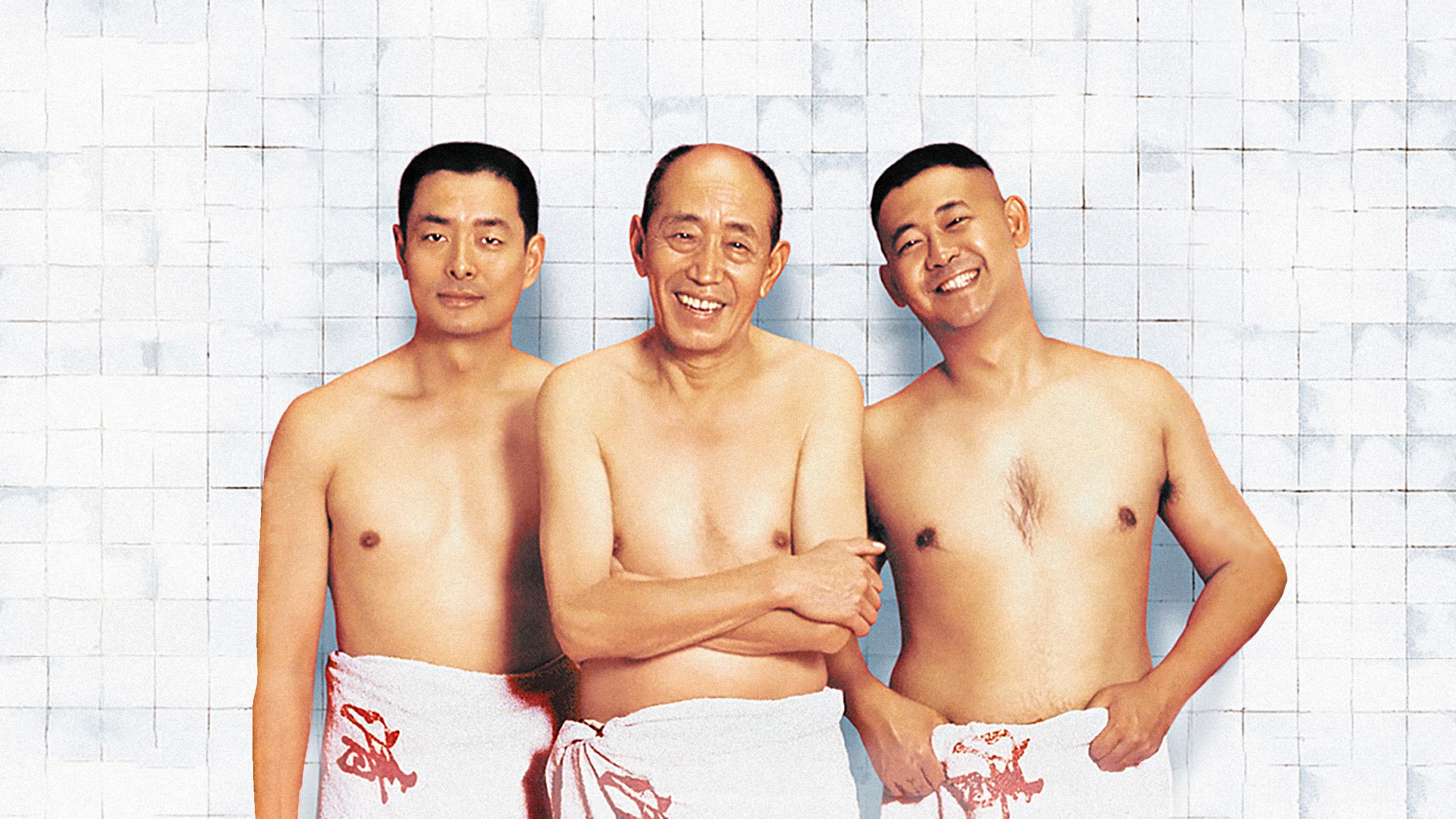
proofdaily.com – “Shower” (1999), directed by Zhang Yang, is a Chinese film that beautifully captures the delicate balance between tradition and modernity. Set in Beijing, the film explores themes of family, community, and the evolving cultural landscape, offering a poignant look at the intersection of the old and new in a rapidly changing society.
Plot Overview
The story revolves around a traditional bathhouse run by an elderly man, known affectionately as Old Liu, played by Zhu Xu. His elder son, Da Ming (Pu Cunxin), has long left for the bustling city life in Shenzhen, leaving his father and his mentally challenged younger brother, Er Ming (Jiang Wu), to manage the bathhouse.
When Da Ming returns home believing his father has passed away, he finds himself drawn back into the world he thought he had left behind. The film unfolds as Da Ming reconnects with his family and the community, rediscovering the value of the simple, traditional life represented by the bathhouse.
Themes and Analysis
Tradition vs. Modernity
“Shower” examines the tension between traditional values and the encroachment of modernity. The bathhouse symbolizes a way of life that is slowly fading as modern conveniences and rapid urbanization transform Beijing. Through Da Ming’s journey, the film highlights the importance of preserving cultural heritage and the sense of belonging it fosters.
Family and Reconciliation
At its core, the film is a heartfelt exploration of family relationships. Da Ming’s return home sets the stage for reconciliation with his father and brother. The film poignantly depicts the healing power of familial love and the importance of understanding and accepting one another’s differences.
Community and Connection
The bathhouse serves as a microcosm of community life, where people from different walks of life gather to share stories, seek advice, and find solace. The film underscores the significance of community bonds and the role they play in supporting individuals through life’s challenges.
Cinematic Style
Zhang Yang’s direction is characterized by its simplicity and authenticity. The film’s cinematography captures the bustling yet intimate atmosphere of the bathhouse, emphasizing the warmth and camaraderie among its patrons. The performances, particularly by Zhu Xu and Jiang Wu, are natural and deeply moving, adding to the film’s emotional depth.
Reception and Legacy
“Shower” was well-received both domestically and internationally, praised for its insightful portrayal of Chinese culture and its universal themes of family and tradition. The film won several awards, including the FIPRESCI Prize at the Toronto International Film Festival, and remains a beloved classic in Chinese cinema.
Conclusion
“Shower” is a touching and thought-provoking film that resonates with audiences through its exploration of timeless themes. Zhang Yang’s sensitive storytelling and the film’s heartfelt performances make it a poignant reflection on the importance of tradition, family, and community in an ever-changing world.







